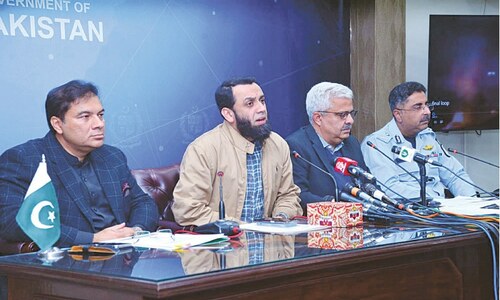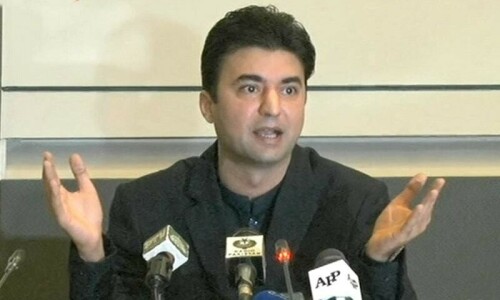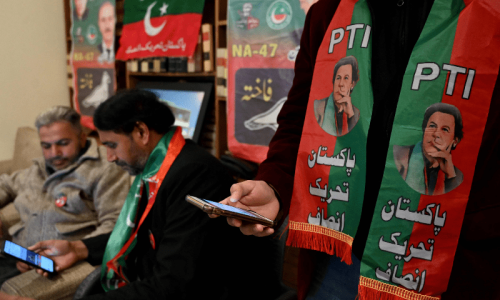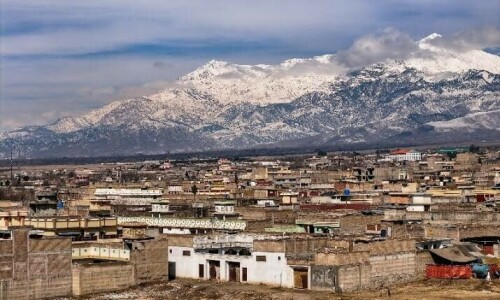ISLAMABAD, Oct 18: President Asif Zardari’s visit to China has thrown up indications that Islamabad is looking forward to bolstering ties with Beijing in a big way.
The president’s decision to visit Beijing after every three months and agreements for the setting up of two nuclear energy plants, launch of a satellite and heavy investments by Chinese corporations in several other projects are some of the signs.
Foreign Minister Shah Mehmood Qureshi and the Adviser on Finance, Shaukat Tarin, at a joint press conference spoke at length about the intensified ties with China based largely on economic relations between the two countries.
President Zardari returned on Friday night from Beijing, where 12 MoUs were signed with China.
According to the foreign minister, the president would visit China every three months for “promoting economic integration between the two countries, enhancing their connectivity, optimally utilising the economic complementarities; and promoting trans-regional economic cooperation”.
“President Zardari wants to give a new dimension to China-Pakistan relations, basing them on enhanced economic cooperation,” the foreign minister said.
In another indication of how eager was Islamabad to lift the ties with China to new heights, a new mechanism of inter-ministerial meeting has been created to monitor the implementation of the MoUs signed in Beijing.
The meeting, to be chaired by President Zardari himself, would be held every month and would also be attended by the Chinese ambassador to Pakistan.
One of the major outcomes of Mr Zardari’s visit was the signing of a civilian nuclear cooperation agreement for the setting up of two more nuclear energy plants – Chashma III and Chashma IV.
“Civilian nuclear cooperation has been enhanced and Chashma III and IV agreement has been signed. These two units would yield 680MW of electricity,” said Mr Qureshi, listing the major successes of the visit.
The foreign minister did not share details about the nuclear cooperation agreement, particularly about how the two countries planned to get it approved by IAEA.
Referring to the Chashma II plant built with Chinese help in 1999, he merely said: “We have done it in the past during more difficult times and we will do it again.”
Chinese companies have also expressed interest in $11 billion Bhasha Dam and $1.2 billion Kohala Hydel Project.
These two agreements are significant after the electricity shortages climbed over 5,000MW and the United States refusal to offer a nuclear energy deal similar to the one offered to India.
In the energy sector, Mr Qureshi also saw a role for China in the gas pipeline project between Iran and Pakistan. “I see a role for China whether China joins the projects at some later stage or invests in it.”
Although, Mr Zardari’s China trip was widely billed as a fundraising visit in view of Pakistan’s plummeting reserves, rising inflation, plunging currency and a possible economic melt down, but no firm commitments have been made by the Chinese leadership except for certain assurances of bailing out the ‘all weather friend’.
Media reports suggest that the president had sought close to $3 billion assistance.
The foreign minister, while speaking on this aspect of the visit, said: “We had frank and candid discussions on the difficult economic compulsions and challenges facing us and they (Chinese leadership) have expressed complete support and are ready to contribute more than the resource gap.”
Mr Qureshi also said China would play an active role in the “Friends of Pakistan’ forum comprising potential donors that are expected to gather in Abu Dhabi in mid-November to pledge economic assistance for Pakistan to help it to help it avert an economic crisis.
Leaders of major Chinese financial institutions like Peoples bank of China, China Development Bank, Industrial and Commercial Bank of China and Ex-Im Bank of China would be shortly visiting Pakistan to see how they could contribute towards assisting Pakistan.
Moreover, heads of Chinese corporations dealing with the energy, mineral, agriculture and IT & Telecom sectors would also be heading towards Pakistan to formulate projects.
President Hu Jintao had assured Mr Zardari that he would encourage the Chinese companies to invest in Pakistan.
Another important feature of president’s visit was the signing of MoU for launch of Pakistan’s first telecommunication satellite Paksat 1R.
“Economic implications of this agreement are significant,” Mr Qureshi said adding it would strengthen the strategic partnership between the two countries.












































Dear visitor, the comments section is undergoing an overhaul and will return soon.